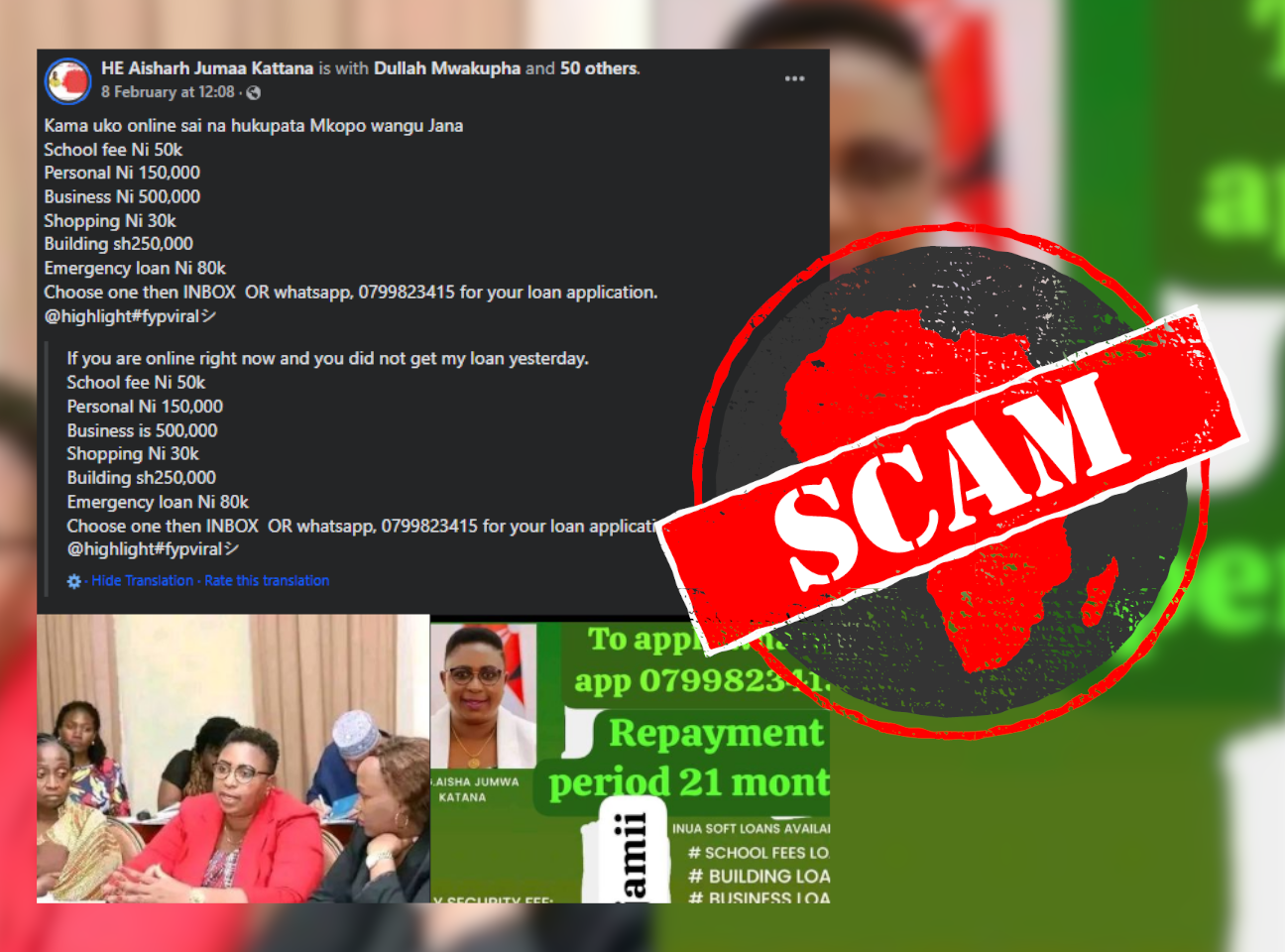IN SHORT: Scammers often use the names of celebrities to offer bogus loans on Facebook. We expose six Facebook accounts using the name of Kenyan politician Aisha Jumwa to make false offers of loans.
The Facebook accounts HE Aisharh Jumaa Kattana, Hon Aishah jumwaa katana loan, HE Aisharh Jumwua Kattarna, Mum Aisha Katana and HE Aisha Juma Katana have advertised loans on Facebook.
Each of the accounts uses the name of Kenyan politician Aisha Jumwa (though misspelled), the cabinet secretary for gender, culture, arts and heritage.
The accounts also use her photos as either their profile picture, cover photo or both. They also list various contacts to be used for the loan applications.
They offer different loan amounts and promise users instant withdrawals to their M-Pesa accounts. M-Pesa is a mobile financial service by Safaricom, Kenya’s largest telecoms company.
Posts can be found here, here, here, here, here, here, here, here, here, here, here, here and here.
But are these accounts to be trusted? We checked.

Imposter accounts
The first hint that these are all fake accounts is that they have misspelled her name or added an extra unusual title to it, such as “mum”. Poor spelling is often a sign that an account or page is fake.
The second indication that the accounts might be fake is that they all have few followers or friends, and have poorly written and repetitive posts. Most Kenyan politicians in influential positions in government have large social media followings and post well-written messages.
All the accounts claim the loans are from Inua Jamii, the Kenyan government programme that provides cash grants to poor and vulnerable people. But the programme does not give out loans.
Jumwa’s official Facebook page Hon. Aisha Jumwa Katana is verified and has over 293,000 followers. It features posts about her daily activities and whereabouts. It makes no mention of any loan offers and publishes well-written messages with no obvious grammatical errors.
The accounts in question are all fake.
To protect yourself, read our guide to Facebook scams and how to spot them.
Republish our content for free
For publishers: what to do if your post is rated false
A fact-checker has rated your Facebook or Instagram post as “false”, “altered”, “partly false” or “missing context”. This could have serious consequences. What do you do?
Click on our guide for the steps you should follow.
Publishers guideAfrica Check teams up with Facebook
Africa Check is a partner in Meta's third-party fact-checking programme to help stop the spread of false information on social media.
The content we rate as “false” will be downgraded on Facebook and Instagram. This means fewer people will see it.
You can also help identify false information on Facebook. This guide explains how.




Add new comment